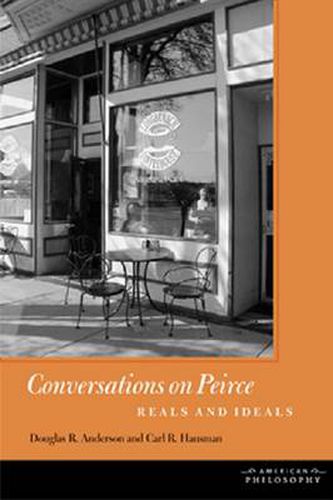Readings Newsletter
Become a Readings Member to make your shopping experience even easier.
Sign in or sign up for free!
You’re not far away from qualifying for FREE standard shipping within Australia
You’ve qualified for FREE standard shipping within Australia
The cart is loading…






The essays in this book have grown out of conversations between the authors-and their colleagues and students-over the past decade and a half. Their germinal question concerned the ways in which Charles Sanders Peirce was and was not both an idealist and a realist. The dialogue began as an exploration of Peirce’s explicit uses of these ideas and then turned to consider the way in which answers to the initial question shed light on other dimensions of Peirce’s architectonic.
The essays explore the nature of semiotic interpretation, perception, and inquiry. Moreover, considering the roles of idealism and realism in Peirce’s thought led to considerations of Peirce’s place in the historical development of pragmatism. The authors find his realism turning sharply against the nominalistic conceptions of science endorsed both explicitly and implicitly by his nonpragmatist contemporaries. And they find his version of pragmatism holding a middle ground between the thought of John Dewey and that of Josiah Royce. The essays aims to invite others to consider the import of these central themes of Peircean thought.
$9.00 standard shipping within Australia
FREE standard shipping within Australia for orders over $100.00
Express & International shipping calculated at checkout
The essays in this book have grown out of conversations between the authors-and their colleagues and students-over the past decade and a half. Their germinal question concerned the ways in which Charles Sanders Peirce was and was not both an idealist and a realist. The dialogue began as an exploration of Peirce’s explicit uses of these ideas and then turned to consider the way in which answers to the initial question shed light on other dimensions of Peirce’s architectonic.
The essays explore the nature of semiotic interpretation, perception, and inquiry. Moreover, considering the roles of idealism and realism in Peirce’s thought led to considerations of Peirce’s place in the historical development of pragmatism. The authors find his realism turning sharply against the nominalistic conceptions of science endorsed both explicitly and implicitly by his nonpragmatist contemporaries. And they find his version of pragmatism holding a middle ground between the thought of John Dewey and that of Josiah Royce. The essays aims to invite others to consider the import of these central themes of Peircean thought.